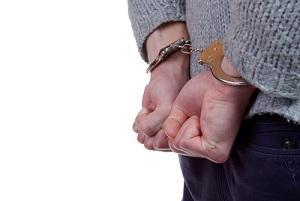Handling Your Child's Legal Needs as a Divorced Parent
 Teenagers make mistakes. Sometimes, these mistakes result in misdemeanor charges, like a shoplifting or underage possession of alcohol charge. In some cases, an adolescent can face a felony charge. As a divorced parent with a shared parenting time and parental responsibilities agreement, you might wonder what your role is regarding your child's criminal record.
Teenagers make mistakes. Sometimes, these mistakes result in misdemeanor charges, like a shoplifting or underage possession of alcohol charge. In some cases, an adolescent can face a felony charge. As a divorced parent with a shared parenting time and parental responsibilities agreement, you might wonder what your role is regarding your child's criminal record.
In Illinois, charges, convictions, and penalties for minors are handled by the Illinois Department of Juvenile Justice. If your child has been charged with a crime, start working with a criminal defense lawyer who specializes in juvenile offenses to handle his or her case. This is not the only lawyer you should contact, however. Speak with your family lawyer as well to determine your rights and responsibilities as a parent and how your child's conviction will, if at all, affect your current arrangements.
Determine a Strategy With the Other Parent
If your child needs to go to court, determine which parent will accompany him or her. You might both want to be there so you both witness it first-hand, or you might determine that it is better for one parent to be there instead of the other.
On the day of your child's trial, bring documents that will reflect well on him or her, such as good report cards or reference letters. Inform each other of new developments in your child's case and determine a unified way to explain the court process to your other children, especially if they are younger than your teen. You might need to alter your parenting time agreement temporarily to make time for one parent to work with your adolescent, so be willing to be flexible.
Determine Which Parent Will Handle Your Child's Legal Costs
Attorney fees and court costs are most likely not part of your child support agreement. Try to work with your former spouse to determine a way to cover your child's legal fees. Your family lawyer may be able to help you with this.
Familiarize Yourself With the Juvenile Justice System
The criminal justice process for minors is not the same as the criminal justice process for adults. Familiarize yourself with the terms that vary according to the defendant's age and the options that may be available to him or her if he or she is convicted, such as rehabilitation.
Your teen has the same rights as an adult who has been accused or charged with a crime. Take the time to talk with him or her about these rights, such as the right to legal counsel and the right to assert his or her Fifth Amendment right, which is the right to avoid self-incrimination.
Work With a Kane County Family Lawyer
When an adolescent is charged with a criminal offense or convicted of a crime, he or she faces different penalties and options than those for adult offenders. These, in general, are meant to rehabilitate young offenders rather than punish them and possibly push them toward further criminal activity. To learn more about the family law aspect of handling your teen's legal issues, speak with an experienced Kane County family lawyer at the Goostree Law Group. Contact us today to schedule your initial consultation with our firm.
Source:
http://www.illinois.gov/idjj/Pages/default.aspx











